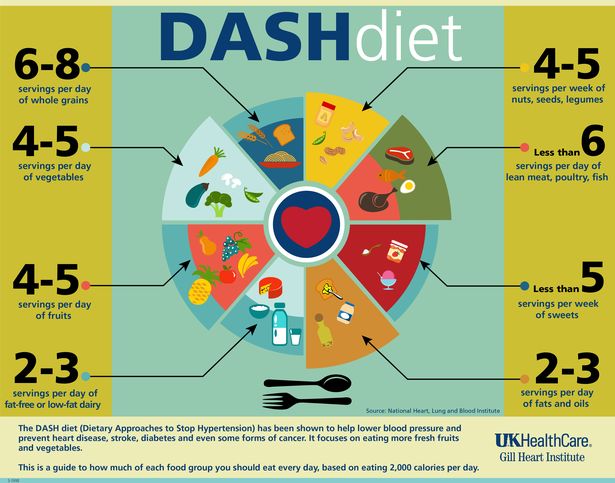Hypertension, known as the ‘silent killer’, has detrimental effects on human health. Exposure to chronic stress has been hypothesized as a potential risk factor– and occupational stress is considered to be extensively aggravating factor of the blood pressure. High blood pressure is an important public health concern and the leading risk factor for global mortality and morbidity. Globally, about 1 billion people are living with hypertension as of today and according to the World Health Organization (WHO), this number expected to reach 1.56 billion people by 2025, covering 29.2% of the world’s population. According to the extended biopsychosocial model which assumes the unity of mind and body every psychophysiological event includes psychological and physiological reactions at the same time. Genetic and behavioral factors do not fully explain the development of hypertension, and there is increasing evidence suggesting that psychosocial factors may also play an important role. The organic tradition in medicine has been responsible for a narrow (physical) view of the etiology, pathogenesis, and treatment of essential hypertension. The psychosomatic approach does not neglect the physical problems involved but includes a consideration of the role of emotions. It emphasizes the multiple factors in etiology, pathogenesis, and treatment and attempts to evaluate the resulting composite clinical picture. Some studies indicate that the emotional component apparently is intimately related to the development of hypertension in some patients, to the production of symptoms in many others, and enters into the question of treatment in nearly all patients with this disorder.
Exposure to chronic stress is considered to be the primary factor contributing in the development of blood pressure condition. As a risk factor for hypertension, and occupational stress, stressful aspects of the social environment, and low socioeconomic status are also the risk factors of hypertension. Acute psychosocial stress exposure is associated with an activation of the SNS leading to different physiological effects, like, for instance, a rise in HR and BP. Acute stress can induce transient elevation of blood pressure, it proves to be sword of Damocles for human body. Human body produces a surge of hormones when it is in a stressful situation. These hormones temporarily increase the blood pressure by causing the heart to beat faster and blood vessels to narrow. Increases in blood pressure related to stress can be dramatic. But when stress goes away, blood pressure returns to normal. However, even frequent, temporary spikes in blood pressure can damage blood vessels, heart and kidneys in a way similar to long-term high blood pressure. Researchers found adults with normal blood pressure but high levels of stress hormones were more likely to develop high blood pressure in six to seven years than those with lower stress hormone levels. Stress can cause hypertension through repeated blood pressure elevations as well as by stimulation of the nervous system to produce large amounts of vasoconstricting hormones that increase blood pressure. Factors affecting blood pressure through stress include white coat hypertension, job strain, race, social environment, and emotional distress. Furthermore, when one risk factor is coupled with other stress producing factors, the effect on blood pressure is multiplied. The stress hormones norepinephrine, epinephrine, dopamine and cortisol can increase with stress from life events, work, relationships, finances and more. And it is evident that stress is a key factor contributing to the risk of hypertension and cardiovascular events. The researchers analyzes that the levels of norepinephrine, epinephrine, dopamine and cortisol, these three are related to the autonomic nervous system, which regulates heart rate, blood pressure and breathing. Cortisol is a steroid hormone that is released during stress. Each time combined levels of all four stress hormones doubled, the risk of developing high blood pressure rose between 21 per cent and 31 per cent. The effect was more pronounced in people under the age of 60, a worrisome finding, according to the researchers.
Is that stress pumping steadily through your veins? Even if your blood pressure is normal right now, high stress levels may put you at risk of developing hypertension within the next decade or so, a new study found. The good news, is that because the mind, heart and body are interconnected and interdependent, a person can also improve their cardiovascular health by striving for a positive psychological outlook. All varieties of character and neurotic disturbances occur in hypertensive individuals, but most often the disorder seems to appear in people with compulsive characters. Therefore, inhibited aggression seems to bear a definite relationship to hypertension and, if it can be satisfactorily dealt with by means of psychotherapy, anxiety is diminished and blood pressure is often lowered. Even if blood pressure is unaffected, the treatment often benefits the patient by making him a healthier and more effective personality. The objectives in treatment should be readjusted. One must do more than try to bring the blood pressure down. One must go beyond the physical aspects of hypertension to the personality of the hypertensive individual in order to be successful in the management of such patients. Regular physical activity and a healthy, balanced diet play a pivotal role in controlling blood pressure.

Health experts recommend the Dietary Approaches to Stop Hypertension (DASH) diet. The diet is simple, involves eating more fruits, vegetables, low-fat dairy foods and cut back on foods which are high in saturated fats, cholesterol and trans fats. Reflecting upon the causes of stress may also help one manage and mitigate it, say doctors, adding that seeking help, taking out time to relax and pursuing activities or hobbies that bring one joy are also important. People suffering from hypertension seldom notice any symptoms and may even be unaware of the problem, even as it causes serious damage to their body. If left untreated, high blood pressure may lead to serious problems, such as, impairment in sight, persistent chest pain (angina), heart attack, stroke, kidney failure and heart failure, among others, all of which can be highly fatal. Remember that human minds and bodies were designed to give stress signals when they need to pay attention to a real or perceived threat. It may be find out that, one accept that one is stressed and try to identify what exactly it is about it that is getting to him/her,. An analysis of various stress reduction interventions including biofeedback, progressive muscle relaxation, stress management training, and transcendental meditation, found that only transcendental meditation was associated with significant BP reductions Meditation has been shown to reduce rumination to a greater degree than somatic relaxation training which may help to explain its greater effectiveness in reducing BP. Thus, targeting factors that influence the impact of stress on BP, such as coping responses, may be a useful intervention strategy, particularly when exposure to stress cannot be avoided or reduced. If researches supports the role of rumination as one of the mechanisms by which exposure to stress increases risk for hypertension, an important next step will be to examine whether modifying ruminative tendencies does in fact improve BP recovery following stressful events and reduce the risk of hypertension.




